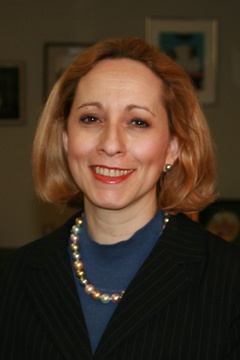 The Society for Participatory Medicine, which has been advocating for greater patient engagement in healthcare since 2009, has hired Barbara L. Kornblau, former dean of the School of Health Professions and Studies at the University of Michigan's Flint campus, as its first executive director.
The Society for Participatory Medicine, which has been advocating for greater patient engagement in healthcare since 2009, has hired Barbara L. Kornblau, former dean of the School of Health Professions and Studies at the University of Michigan's Flint campus, as its first executive director.
Kornblau will be tasked with spreading the word about patient engagement to healthcare professionals and the general public. "We will be working from a micro level to improve healthcare on a macro level," says Kornblau, a veteran of numerous healthcare and advocacy pursuits.
Kornblau, an attorney and licensed occupational therapist, also has been a professor of occupational therapy and public health at Nova Southeastern University in Fort Lauderdale, Fla., a Robert Wood Johnson Health Policy Fellow for U.S. Sens. Tom Harkin (D-Iowa) and Jay Rockefeller (D-W. Va.), a government relations consultant for the Special Olympics and founder of the Coalition for Disability Health Equity.
"Everything I've been doing in my career has been geared toward participatory medicine. I just didn't know it was called that," she says.
SPM is intended as a partnership between empowered patients – otherwise known as e-patients – and healthcare professionals.
Digital health tools are considered essential to the e-patient movement. While health IT policy-makers and more than a few academics refer to technology as an enabler of better, safer and more efficient care, Kornblau has a different term for it. "I think it's more of an empowerer, if there is such a word, than an enabler," she said.
Kornblau, who is based in Washington, tells of being a member of Rotary International, which had a saying: "Everyone is a Rotarian. You just have to ask them to join." She says the same principle applies to e-patients, and it will be her job to ask people to join in taking a more active role in their own care.
In an interview with MobiHealthNews, Kornblau relates the story of searching for a primary care physician when she moved to the Washington area from Michigan, where she was used to her doctor practicing with electronic health records. She went to three different practices, none of which had EHRs. "I felt uncomfortable in their offices because [it seemed like] there was a wall between the doctor and me," Kornblau says.
She wanted to ask for a copy of her doctor's handwritten notes, but Kornblau said it felt like an imposition.
One of her roles as executive director of SPM will be to inform clinicians about how sharing records with patients can have a positive impact on care. Kornblau also will be trying to get the general public accustomed to asking for their own health data and how to understand clinician notes. "If you can see the records, it benefits everybody," Kornblau says.
While there historically has been reluctance among clinicians to show patients their notes, the resistance is fading, according to Kornblau. Older physicians and nurses who might fight this shift eventually will retire. "The hope is that new docs/nurses will be trained in EHRs and will embrace this," Kornblau says. She reports seeing this already in nursing education, and new physicians are more likely than ever to encounter EHRs and patient portals during their medical residencies.
Public policy also is shifting toward patient empowerment.
Stage 2 of the "meaningful use" EHR incentive program, which starts in 2014, requires providers to give at least 50 percent of their patients the ability to view and download their own medical records through online portals, up from 10 percent in Stage 1. And unlike in the first stage, 5 percent of patients will actually have to log in to those portals for physicians and hospitals to earn their Medicare and Medicaid bonus payments. For the first time, EHR adoption won't be completely in the hands of the provider.
"That makes a lot of sense," Kornblau says.
Another significant breakthrough for the Society for Participatory Medicine is that its members contributed signficantly to a book set to be published by the Healthcare Information and Management Systems Society (HIMSS). The book is about consumer engagement in healthcare and it is coming out in March, according to Kornblau. "There will be other projects with HIMSS," she adds. (Correction: An earlier version of this article incorrectly stated that the book was the result of an official partnership between SPM and HIMSS, however, it actually just includes contributions from SPM's members.)



















